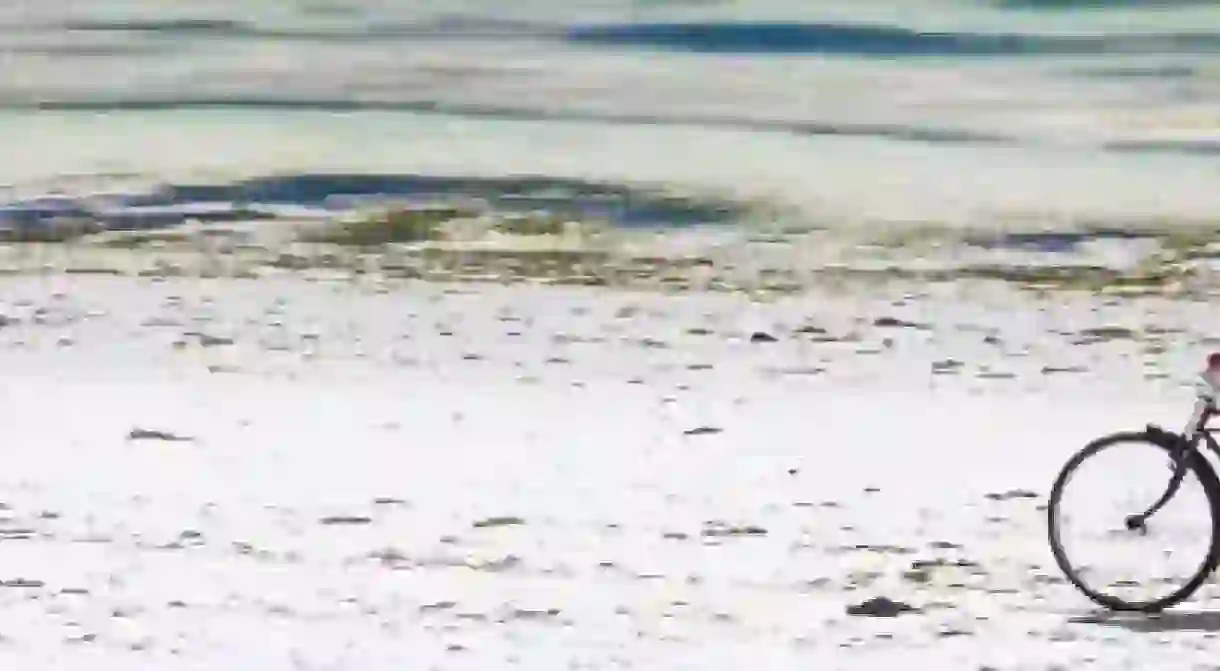Alternative Adventures In Zanzibar

Zanziba, an island 15 miles off the coast of Tanzania, has become one of the most popular destinations in the world. While it is sought after by many travelers for specific experiences, there are plenty of things to see and do that could make your Zanzibar experience more than just run-of-the-mill.

There are many exciting activities to experience while exploring the exotic beauty of Zanzibar: scuba diving, eating in Forodhani Gardens, exploring the different spices of the local market, lying on the beach holding a pineapple juice in one hand and a newspaper in the other, and of course, strolling down the Stone Town streets looking for some good restaurants, shops, and entertainment. There’s only one major problem in these scenarios – “been there, done that”…along with every other tourist. So, during your adventure in Zanzibar, why not explore activities that are as unique and exciting as the island itself? Need ideas? Luckily, we have some for you.
Get Crafty
If you want to use your hands in the ancient ways that have been known to Zanzibar’s craftsmen and women for decades, then let the guides from Urban Adventures take you to experience the textile workshops in the city of Zanzibar. While there, you’ll be able to see how fabrics are dyed and turned into traditional clothing. If you ask nicely, the owners might let you try dyeing fabrics yourself to create your very own Zanzibari craft.
If textiles are not your thing, you can also pay a visit to the wood shop to see how the famous wooden beds and carved doors are made.

How’s Your Swahili?
Want to get really familiar with the locals? The best way of doing that is to learn their language and stay in their homes. Luckily for you, both options are available.
Swahili Prof is operated by Professor Mwalimu Jecha. He provides private lessons at a rate of only $10 per hour, and can be scheduled according to your convenience. During the lessons, you will develop reading, writing and speaking skills in Swahili, while learning even more about the culture.
There is no better way to put your newly acquired language skills to the test than by doing a homestay with a local Zanzibari family. Well, get ready for total cultural immersion, because Mwalimu Jecha can easily arrange that for you, too. The families are accustomed to hosting foreigners, so expect no problems.
Usually, after paying Mwalimu Jecha for arranging the homestay, you will also pay a daily fee of $25 directly to the host family. Don’t forget to show up hungry, the price includes full room and board, Zanzibar style.

Row, Row, Row Your Boat
One of the most unique transportation vehicles in Zanzibar is the dhow boat. The dhow can be used for various purposes: snorkeling trips, for instance, as well as for leisurely sailing in the sun.
The sailors of Mambo Poa would love to take you wherever you want to go, for as long as you want. They’ll also help you catch a fish for dinner, and have a relaxing meal, watching the sunset.
If fishing is really your thing, you can go on a half day authentic fishing trip with the tour company Eco & Culture Tours, setting sail from one of the oldest ports in Africa. Don’t expect a modern fishing experience – you’ll be equipped with simple fishing gear, used by the local fishermen on their daily trips. Don’t be upset, though; the locals catch kingfish, tuna, and even barracudas using this gear, so why can’t you?
Same Zanzibar, Different View
Want to see Zanzibar in a way that very few tourists do? No problem. In addition to dhow boat sailing excursions, Mambo Poa offers a variety of alternative style tours. Take a guided bike ride to explore gorgeous abandoned buildings and hotels. Maybe you will even be lucky enough to encounter a spontaneous Zanzibari party going on there, as is known to happen from time to time.
The guides at Mambo Poa can also take you to visit a small, rural village, meet the local people, and learn about their lives and their industries of seaweed farming and coconut rope production. You can also check out the village schools – but don’t forget to bring gifts of pencils and paper. The kids really appreciate it.













